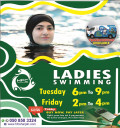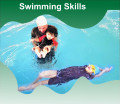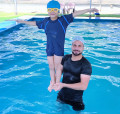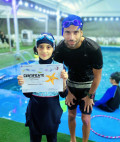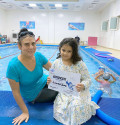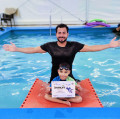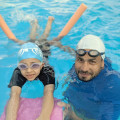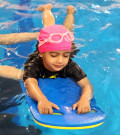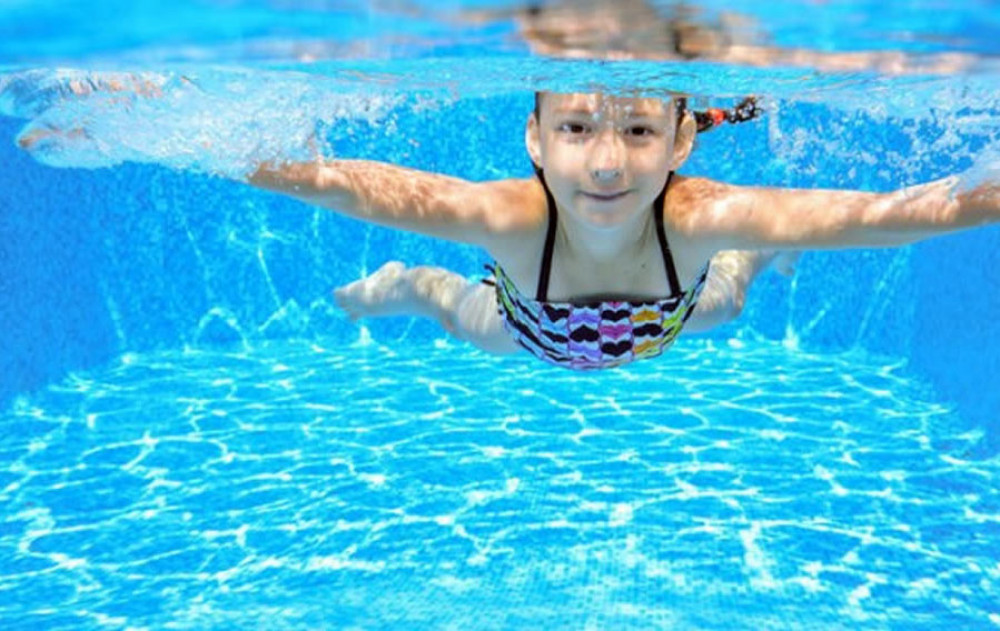
Swimming inside the Water: Enhancing Your Breathing Technique
2023-10-22 - swimming1. Introduction
Swimming is a fantastic full-body workout that offers
numerous health benefits. However, many swimmers, especially beginners,
struggle with breath control, which can impact their overall performance. In
this article, we will explore the art of swimming inside the water while
increasing your breathing timing. We will discuss various techniques and tips
to help you breathe more efficiently during your swim, making it an enjoyable
and effective exercise.
2. The Importance of Breathing in Swimming
Breathing is an essential aspect of swimming. Proper
breathing techniques not only help you stay afloat but also provide the oxygen
your muscles need to perform at their best. Whether you're a competitive
swimmer or just enjoy leisurely laps in the pool, improving your breathing can
enhance your experience.
3. Understanding the Basics of Breath Control
Before you dive into the water, it's crucial to understand
the basics of breath control. Learning when and how to breathe is fundamental.
Inhaling during your stroke and exhaling underwater is a common technique that
ensures a steady flow of oxygen.
4. The Role of Body Position
Maintaining the right body position is essential for
efficient breathing. A horizontal body position reduces resistance and allows
you to breathe more comfortably. Practice keeping your body in line with the
water's surface.
5. Utilizing Proper Stroke Techniques
Different swimming strokes require different breathing
techniques. Freestyle and backstroke allow for easier breathing because your
face remains above water. In contrast, breaststroke and butterfly strokes
require precise timing to inhale and exhale while avoiding water intake.
6. Overcoming Common Breathing Challenges
Swimmers often face challenges such as water entering the
nose or mouth. These can be overcome with practice and techniques like exhaling
forcefully through your nose underwater and using well-fitted goggles.
7. Building Your Endurance
Enhancing your breathing technique goes hand-in-hand with
building endurance. Gradually increase the distance you swim and practice
controlled breathing. This will help you adapt to longer swims and improve your
overall lung capacity.
8. Tips for Beginners
For beginners, it's essential to start with shorter
distances and focus on technique rather than speed. Learning to breathe
properly is the foundation for swimming success.
9. Advanced Breathing Techniques
Advanced swimmers can explore techniques like bilateral
breathing (alternating sides),which helps maintain balance and symmetry in
your stroke. It's a valuable skill for competitive swimmers.
10. Dry Land Exercises for Breath Control
Improving your lung capacity can be done out of the water as
well. Incorporate exercises like diaphragmatic breathing and breath-holding to
increase your breath control.
11. The Psychological Aspect of Breath
Mental preparation is as crucial as physical training. Calm
your mind, stay focused, and visualize your breath control to optimize your
swimming experience.
12. Safety Precautions
Safety should always be a priority when swimming. Be aware
of your limitations and don't push yourself too hard. Swimming with a buddy and
being conscious of water conditions are essential safety measures.
13. Swimming and Medical Conditions
If you have specific medical conditions, consult your
healthcare provider before engaging in swimming. They can offer guidance on how
to swim safely and adjust your techniques to suit your needs.
14. The Benefits of Enhanced Breathing
Enhanced breathing in swimming not only improves your
performance but also offers overall health benefits. It increases
cardiovascular fitness, muscle strength, and reduces stress, making swimming an
excellent choice for holistic well-being.
15. Conclusion
Swimming inside the water while enhancing your breathing
technique is a journey that requires practice, patience, and dedication. By
following the outlined techniques and tips, you can elevate your swimming
experience and enjoy the numerous benefits it has to offer.







.jpg)





















































